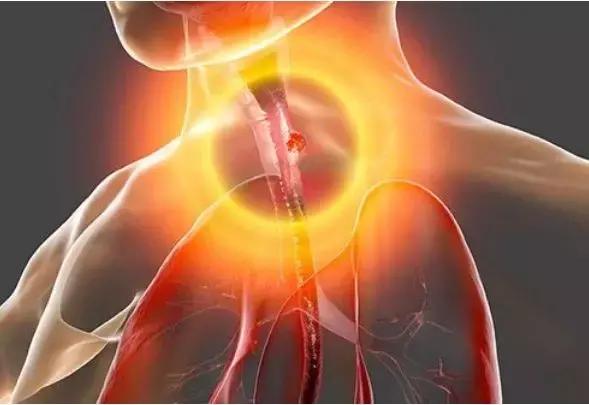- Home
- Medical news & Guidelines
- Anesthesiology
- Cardiology and CTVS
- Critical Care
- Dentistry
- Dermatology
- Diabetes and Endocrinology
- ENT
- Gastroenterology
- Medicine
- Nephrology
- Neurology
- Obstretics-Gynaecology
- Oncology
- Ophthalmology
- Orthopaedics
- Pediatrics-Neonatology
- Psychiatry
- Pulmonology
- Radiology
- Surgery
- Urology
- Laboratory Medicine
- Diet
- Nursing
- Paramedical
- Physiotherapy
- Health news
- Fact Check
- Bone Health Fact Check
- Brain Health Fact Check
- Cancer Related Fact Check
- Child Care Fact Check
- Dental and oral health fact check
- Diabetes and metabolic health fact check
- Diet and Nutrition Fact Check
- Eye and ENT Care Fact Check
- Fitness fact check
- Gut health fact check
- Heart health fact check
- Kidney health fact check
- Medical education fact check
- Men's health fact check
- Respiratory fact check
- Skin and hair care fact check
- Vaccine and Immunization fact check
- Women's health fact check
- AYUSH
- State News
- Andaman and Nicobar Islands
- Andhra Pradesh
- Arunachal Pradesh
- Assam
- Bihar
- Chandigarh
- Chattisgarh
- Dadra and Nagar Haveli
- Daman and Diu
- Delhi
- Goa
- Gujarat
- Haryana
- Himachal Pradesh
- Jammu & Kashmir
- Jharkhand
- Karnataka
- Kerala
- Ladakh
- Lakshadweep
- Madhya Pradesh
- Maharashtra
- Manipur
- Meghalaya
- Mizoram
- Nagaland
- Odisha
- Puducherry
- Punjab
- Rajasthan
- Sikkim
- Tamil Nadu
- Telangana
- Tripura
- Uttar Pradesh
- Uttrakhand
- West Bengal
- Medical Education
- Industry
Narrow-band imaging bests Lugol for diagnosis of early SCC, finds study

Narrow-band imaging was more specific than Lugol in current gastroenterology practice for the detection of early SCC, but combined approaches with both NBI and Lugol could improve the detection of squamous neoplasia, suggests findings from recent study published in Endoscopy.
Narrow-band imaging (NBI) is as sensitive as Lugol chromoendoscopy to detect esophageal squamous cell carcinoma (SCC) but its specificity, which appears higher than that of Lugol chromoendoscopy in expert centers, remains to be established in general practice. Previous studies by Ishihara et al. demonstrated lower sensitivity of narrow band imaging (NBI) when compared to chromoscopy with Lugol's solution among inexperienced endoscopists, with an increase over the course of the study. For experienced endoscopists, sensitivity levels were consistent between the two methods . In yet another study ,Yokoyama et al. showed that NBI without magnification is suitable for esophageal assessment when searching for a neoplasm in a high-risk population, even without high-definition imagery . With such a controversial background,this study aimed to prove the superiority of NBI specificity over Lugol chromoendoscopy in the detection of esophageal SCC and high grade dysplasia (HGD) in current general practice (including tertiary care centers, local hospitals, and private clinics).
This prospective randomized multicenter trial included consecutive patients with previous or current SCC of the upper aerodigestive tract who were scheduled for gastroscopy. Patients were randomly allocated to either the Lugol or NBI group. In the Lugol group, examination with white light and Lugol chromoendoscopy were successively performed. In the NBI group, NBI examination was performed after white-light endoscopy. We compared the diagnostic characteristics of NBI and Lugol chromoendoscopy in a per-patient analysis.
Results put forth some key facts.
- 334 patients with history of SCC were included and analyzed (intention-to-treat) from 15 French institutions between March 2011 and December 2015.
- In per-patient analysis, sensitivity, specificity, positive and negative likelihood values were 100 %, 66.0 %, 21.2 %, and 100 %, respectively, for Lugol chromoendoscopy vs. 100 %, 79.9 %, 37.5 %, and 100 %, respectively, for NBI. Specificity was greater with NBI than with Lugol (P = 0.002).
For full article follow the link: DOI: 10.1055/a-1224-6822
Source: Endoscopy
Dr Satabdi Saha (BDS, MDS) is a practicing pediatric dentist with a keen interest in new medical researches and updates. She has completed her BDS from North Bengal Dental College ,Darjeeling. Then she went on to secure an ALL INDIA NEET PG rank and completed her MDS from the first dental college in the country – Dr R. Ahmed Dental College and Hospital. She is currently attached to The Marwari Relief Society Hospital as a consultant along with private practice of 2 years. She has published scientific papers in national and international journals. Her strong passion of sharing knowledge with the medical fraternity has motivated her to be a part of Medical Dialogues.
Dr Kamal Kant Kohli-MBBS, DTCD- a chest specialist with more than 30 years of practice and a flair for writing clinical articles, Dr Kamal Kant Kohli joined Medical Dialogues as a Chief Editor of Medical News. Besides writing articles, as an editor, he proofreads and verifies all the medical content published on Medical Dialogues including those coming from journals, studies,medical conferences,guidelines etc. Email: drkohli@medicaldialogues.in. Contact no. 011-43720751


